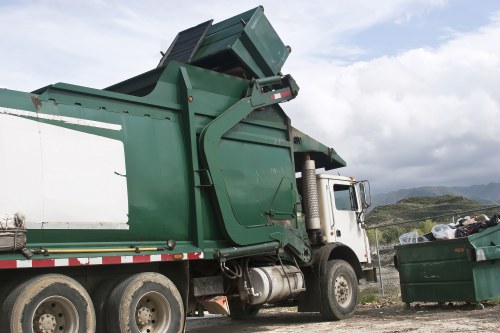Waste Removal in Sudbury: Efficient and Sustainable Solutions
Understanding the Importance of Waste Removal

Waste removal is a critical service that ensures the cleanliness and sustainability of communities. In Sudbury, effective waste management not only keeps the city clean but also contributes to environmental conservation and public health.
Proper waste removal helps in reducing pollution, conserving natural resources, and promoting recycling and reuse practices. It plays a vital role in maintaining the aesthetic appeal of the city and preventing the spread of diseases associated with unmanaged waste.
Moreover, efficient waste management systems can lead to economic benefits by creating jobs in the recycling and waste processing sectors. It also helps in reducing the costs associated with waste disposal and management for both residents and businesses.
Types of Waste Managed in Sudbury

Sudbury handles various types of waste, each requiring specific handling and disposal methods to ensure environmental safety and compliance with local regulations.
Household Waste: This includes everyday items generated from homes, such as food scraps, packaging materials, and non-recyclable items. Regular collection and disposal are essential to prevent accumulation and associated health hazards.
Recyclable Materials: Items like paper, glass, metal, and certain plastics are collected separately to be processed and reused. Recycling reduces the demand for raw materials and minimizes landfill usage.
Commercial and Industrial Waste

Businesses in Sudbury generate significant amounts of commercial and industrial waste, which require specialized disposal solutions. This includes hazardous materials, electronic waste, and large-scale refuse that cannot be managed through standard municipal services.
Proper disposal of commercial and industrial waste is crucial to prevent environmental contamination and ensure workplace safety. Companies are encouraged to adopt waste reduction strategies and invest in sustainable waste management practices.
Many waste removal services in Sudbury offer tailored solutions for businesses, including scheduled pickups, secure waste storage, and recycling programs to help reduce the environmental footprint.
Recycling and Composting Initiatives

Recycling and composting are integral components of Sudbury's waste management strategy. These initiatives aim to divert recyclable and organic waste from landfills, promoting sustainability and reducing greenhouse gas emissions.
Recycling Programs: Sudbury provides comprehensive recycling programs that accept a wide range of materials. Residents can easily sort and dispose of recyclables, knowing that they will be processed responsibly.
Composting: Organic waste, such as food scraps and yard waste, can be composted to create nutrient-rich soil amendments. Composting reduces landfill waste and supports local gardening and agriculture.
Innovative Waste Management Technologies

Sudbury is embracing innovative technologies to enhance waste removal efficiency and sustainability. Advanced systems for waste sorting, processing, and energy recovery are being implemented to optimize resource utilization.
Automated Sorting: High-tech sorting facilities use sensors and robotics to separate different types of waste accurately, increasing the rate of material recovery and reducing contamination.
Energy Recovery: Some waste-to-energy plants in Sudbury convert non-recyclable waste into electricity and heat, providing a renewable energy source while minimizing landfill use.
Challenges in Waste Removal
Despite advancements, waste removal in Sudbury faces several challenges, including increasing waste volumes, resource limitations, and the need for continuous public education on waste reduction.
Addressing these challenges requires collaborative efforts between the government, businesses, and residents. Implementing stricter waste management policies, investing in infrastructure, and promoting sustainable practices are essential steps toward overcoming these obstacles.
Continued innovation and community involvement are key to ensuring that Sudbury remains clean, healthy, and environmentally responsible.
Future of Waste Removal in Sudbury
The future of waste removal in Sudbury looks promising with ongoing initiatives aimed at enhancing efficiency and sustainability. Emphasis on reducing waste generation, increasing recycling rates, and adopting green technologies will shape the landscape of waste management in the coming years.
Community engagement and education will play a significant role in fostering a culture of waste reduction and responsible disposal. By encouraging residents and businesses to participate actively in waste management programs, Sudbury can achieve its environmental and sustainability goals.
Investments in research and development will drive the adoption of innovative solutions, ensuring that Sudbury remains at the forefront of effective waste removal and environmental stewardship.
Conclusion
Efficient waste removal in Sudbury is essential for maintaining a clean, healthy, and sustainable environment. Through comprehensive waste management strategies, recycling and composting initiatives, and the adoption of innovative technologies, Sudbury is paving the way for a greener future.
Residents and businesses alike play a crucial role in supporting these efforts by practicing responsible waste disposal and actively participating in recycling programs. Together, we can ensure that Sudbury remains a vibrant and eco-friendly community for generations to come.
If you're looking for reliable waste removal services in Sudbury, contact us today and discover how we can help you manage your waste efficiently and sustainably.